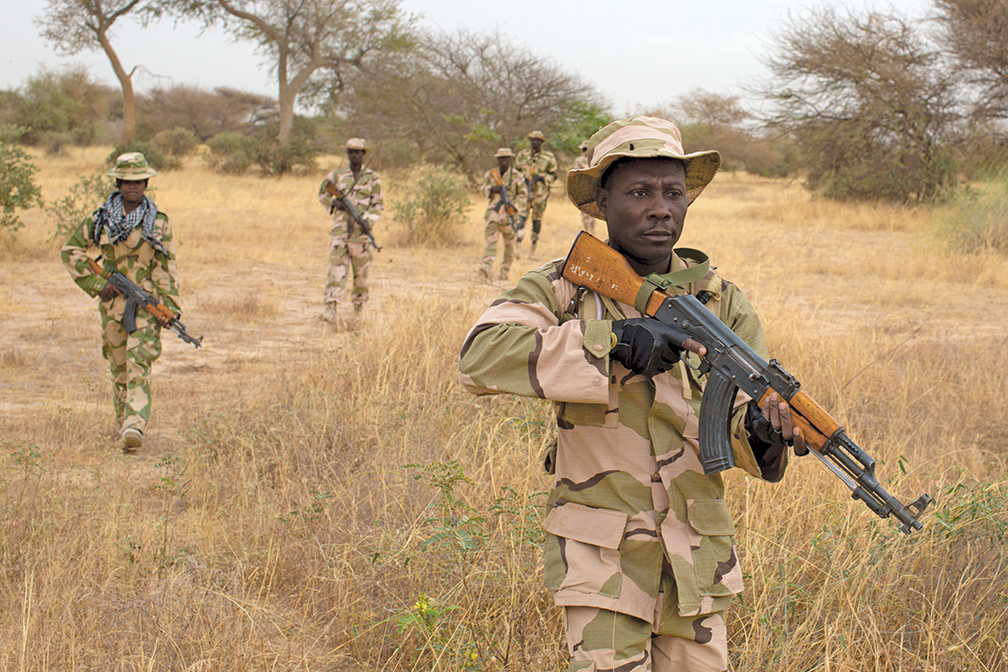U.S. Africa Command Staff
Security begins with cooperation. Whether it is efforts in West Africa to stem the influx of illegal drugs from South America or bringing security to the continent’s ever-growing presence in cyperspace, countries will have to combine their efforts to win and preserve peace.
An example of this occurred recently in Niger, where nations from the Sahel region gathered in Niamey, Agadez, Tahoua and Diffa in February and March 2014 for Exercise Flintlock 14. Participants were taught methods for addressing the growing threat of terrorist and violent extremist organizations, such as those that have taken root in northern Mali.
As the 18 participating nations trained on techniques for air drops, casualty evacuation and patrolling skills, they also learned an important truth about building lasting security: Civilians can help. Building good relationships with civilians is essential, especially in large nations with vast open spaces that are far from government centers. Civilians who trust their militaries and security forces will be willing partners in efforts to make sure outsiders and extremist groups don’t destabilize regions.
Relationships spanning the continent among senior African security officials also are essential. A network of professional military education institutions is helping to build regional security cooperation by fostering relationships and friendships among the officials who attend them.
The role of the African Union also is important. Moving forward, member nations will have to focus on harmonizing efforts and increasing their capacity to respond to crises on the continent. With this kind of focus and cooperation, the AU can replicate the kinds of successes that the African Union Mission in Somalia has had recently in its fight against al-Shabaab extremists.
Security ultimately will be built upon strong cooperation and relationships among nations, armies and people.

